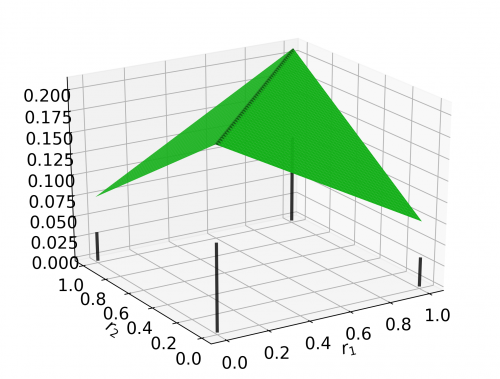
A new fuzzy switching filter for time series denoising
Kalman's filter (1960) aims to estimate the hidden states of a dynamic (linear and Gaussian) system from noisy and possibly missing observations. This work is part of a series of studies begun in the 2000s that are studying some extensions of this filter, while maintaining the optimality and speed of the algorithm obtained.
When observations depend on several modes, such as when tracking targets during a day/night rotation, the filter is called a switching filter. In this context, the originality of the research work lies in the introduction of fuzzy switches, through discrete / continuous mixed probability laws, by combining Dirac measurement and Lebesgue measurement. It is thus possible to take into consideration in the filter some 'fuzzy modes', illustrated in the paper by progressive temperature transitions in a preliminary study related to the energy consumption of a building.
More information:
Z. Bouyahia, S. Derrode and W. Pieczynski, Filtering in Gaussian Linear Systems with Fuzzy Switches, IEEE Trans. on Fuzzy Systems, accepted June 4th 2019.
